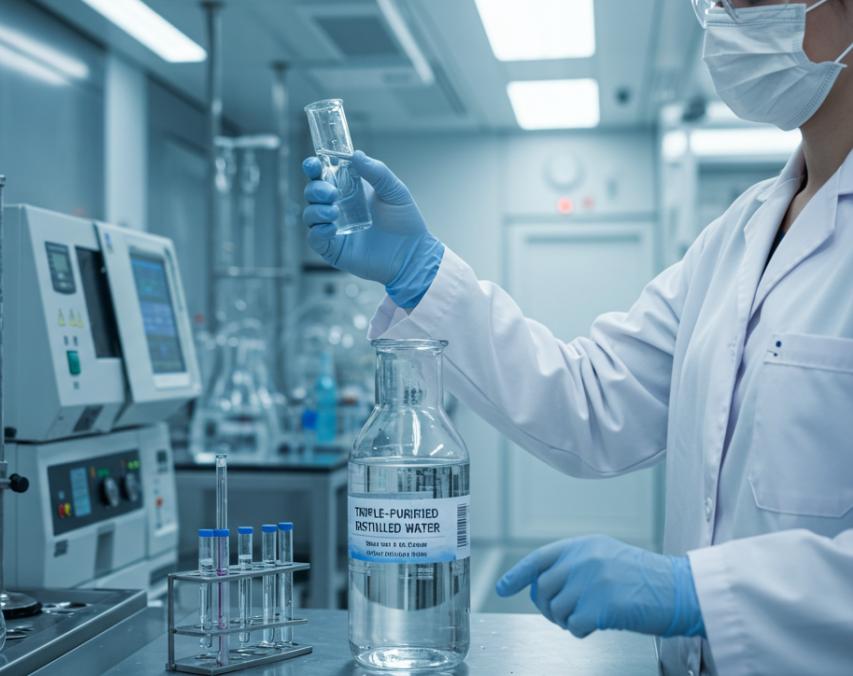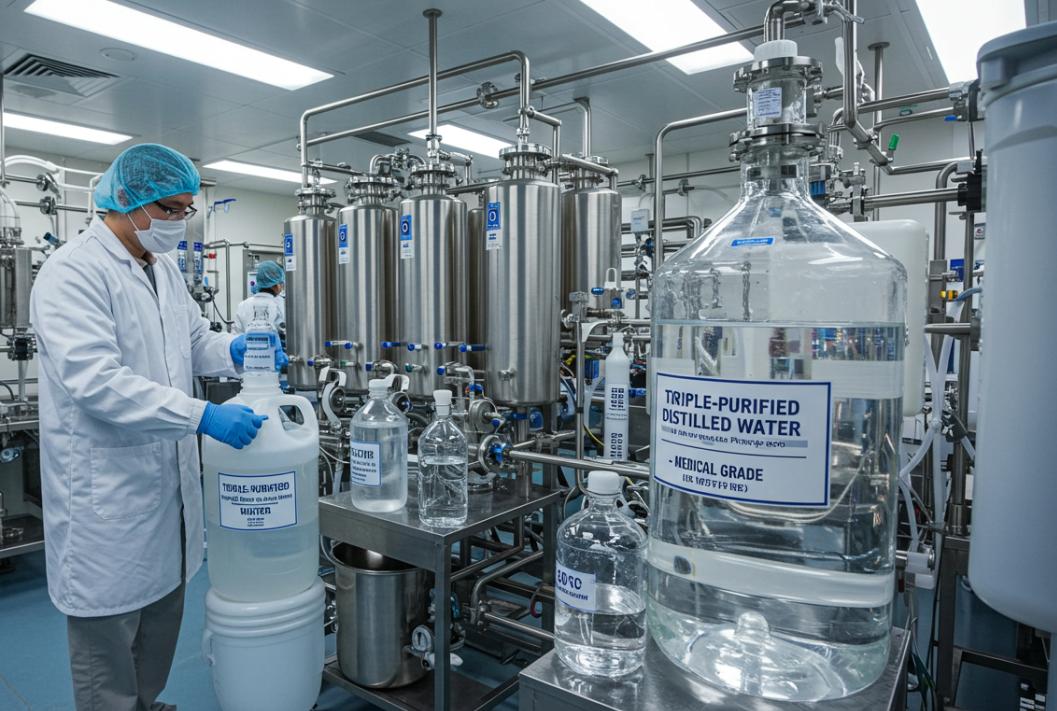In the evolving field of healthcare, the need for sustainable practices has never been more pressing. One area that is gaining attention is the use of triple-purified distilled water. But what exactly is it, and how can it serve the medical industry effectively?
The Process of Triple-Purification
Triple purification process involves multiple stages of treatment and filtering that ensure water is stripped of contaminants, chemicals, and microorganisms.
Stage One: Filtration
Initially, the water undergoes a mechanical filtering process. This removes larger particles and sediments, such as dust and rust, which can affect the quality. By ensuring a clean start, the subsequent stages can focus on more minute impurities.
Stage Two: Distillation
Following filtration, distillation is employed. Here, water is heated to its boiling point, converting it into steam. This phase effectively eliminates most contaminants, including heavy metals and volatile organic compounds, as they do not evaporate with the water. As the steam cools, it condenses back into liquid, resulting in highly purified water.
Stage Three: Additional Purity Measures
Finally, the distilled water might undergo further treatments, such as reverse osmosis. This helps in removing any remaining ions and ensures a product that is consistently reliable. The whole process culminates in clean water that can be used for various medical applications, guaranteeing safety and efficacy.
The Role of Triple-Purified Distilled Water in Healthcare
Water is fundamental in healthcare settings, from patient care to instrument sterilization. Using triple-purified distilled water presents numerous advantages in this domain.
Quality Assurance
One significant benefit is the quality assurance it provides. This type of water is devoid of impurities that could potentially compromise patient health. In environments where sterilization is vital, such as surgical theaters, using ultra-pure water can greatly reduce the risk of infections.
Environmental Benefits
Another compelling reason to adopt triple-purified distilled water is its environmental footprint. The methods involved in its production can be environmentally friendly. By choosing a sustainable filtration and distillation process, healthcare facilities can diminish their overall carbon emissions and support eco-friendly initiatives.
Cost-Effectiveness
While the initial investment might be higher than conventional water sources, the long-term savings can be substantial. By minimizing waterborne infections and enhancing patient safety, hospitals can save considerable resources related to treatments and legal proceedings. It’s a wise investment that pays dividends over time.
Comparative Analysis of Water Purification Methods
| Water Type | Purification Method | Cost (per liter) |
|---|---|---|
| Triple-Purified Distilled Water | Filtration, Distillation, Reverse Osmosis | $0.50 |
| Tap Water | Chlorination and Filtering | $0.10 |
| Spring Water | Natural Filtration | $0.30 |
| Mineral Water | Spring Source | $0.75 |
Challenges and Considerations
Of course, while there are clear advantages, there are challenges as well. The initial setup required for effective triple-purification can be a barrier for some institutions. Additionally, not all facilities may be trained or ready to implement such advanced purification systems.
Education and Training
To maximize the benefits of triple-purified distilled water, medical staff must be properly educated on its importance. Training programs can help staff better understand the value and practical applications of using this water in their daily operations. The better-informed they are, the more efficiently they can implement these practices.
Regulatory Standards
Healthcare providers must also consider the regulatory standards concerning water quality and patient safety. Ensuring compliance with such regulations often requires ongoing monitoring and testing. Thus, diligent record-keeping and engagement with compliance experts become crucial components of maintaining high water quality.

The Future of Water in Healthcare
As healthcare continues to evolve, there is a growing move toward incorporating sustainable practices. Triple-purified distilled water could play a significant role in this transformation. Not only does it provide a reliable and safe water source, but it also encourages a shift towards greener methodologies.
The medical sector’s commitment to sustainability can significantly influence public perception and trust. By adopting such eco-friendly solutions, healthcare providers can position themselves as responsible and forward-thinking institutions.
Contact B.E. Products for tailored solutions to your facility’s needs. Their team can support your commitment to safe, eco-conscious care.
https://www.youtube.com/watch?v=ESw0A3nee0w
